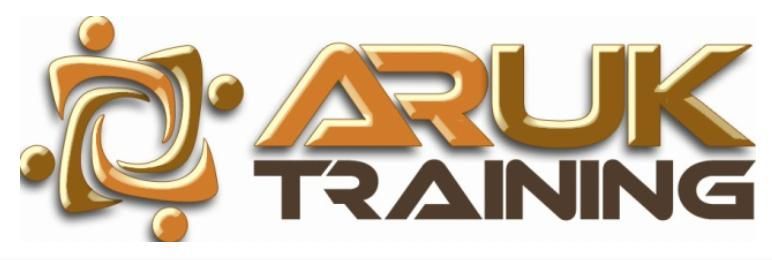
Handling Difficult Situations and Conversations
Course ID: 2512012701411EGI
Course Dates : 01/12/25 Course Duration : 5 Studying Day/s Course Location: Barcelona, Spain
Language: Bilingual
Course Category: Professional and CPD Training Programs
Course Subcategories: Operations and Process Excellence
Course Certified By: * Projacs Academy
* Professional Training and CPD Programs
Certification Will Be Issued From :
KSA
Course Fees: £4,867.80
Vat Not Included in the price. VAT may vary depending on the country where the course or workshop is held.
Click to Pay
Date has passed please contact us Sales@e-s-hub.com
Course Information
Introduction
Difficult situations and conversations are an inevitable part of professional life, whether in leadership roles, team dynamics, or customer interactions. These moments often arise when expectations are misaligned, emotions run high, or conflicting interests surface. Navigating such scenarios requires a blend of emotional intelligence, communication skills, and strategic thinking—qualities that are increasingly valued in today’s competitive work environments. Professionals who can effectively manage these challenges not only enhance their personal credibility but also contribute significantly to organizational success.
One notable challenge is the gap between theoretical knowledge and practical application. Many individuals are aware of communication theories like active listening or nonviolent communication (developed by Marshall Rosenberg) but struggle to implement them under pressure. This course bridges that divide by equipping participants with actionable strategies grounded in established frameworks. For instance, the Thomas-Kilmann Conflict Mode Instrument (TKI) provides insights into conflict resolution styles, while Goleman’s Emotional Intelligence model underscores the importance of self-awareness and empathy during tense discussions.
The consequences of mishandling difficult conversations can be severe, ranging from damaged relationships to decreased productivity and even legal ramifications. A real-world example is seen in a case study involving a multinational corporation where poorly managed feedback sessions led to widespread employee disengagement and turnover. Conversely, organizations that prioritize training in this area report higher morale, improved collaboration, and reduced workplace conflicts. By mastering the art of handling challenging interactions, professionals can foster trust, resolve disputes constructively, and create a more harmonious work environment.
Moreover, industries such as healthcare, education, human resources, and customer service face unique pressures that make effective communication critical. Consider a hospital administrator mediating between frustrated patients and overworked staff, or a teacher addressing sensitive issues with parents. Each scenario demands tailored approaches rooted in both soft skills and industry-specific protocols. This course draws on interdisciplinary insights to address these nuances, ensuring relevance across diverse sectors.
A key trend shaping modern workplaces is the emphasis on psychological safety—a concept popularized by Amy Edmondson. When employees feel safe expressing concerns without fear of retribution, they are more likely to engage openly in difficult dialogues. However, creating such an atmosphere requires deliberate effort and skillful facilitation. Participants will explore techniques for fostering psychological safety while maintaining professionalism and accountability.
Ultimately, mastering the art of handling difficult situations and conversations empowers individuals to transform potential obstacles into opportunities for growth. Whether it involves delivering constructive criticism, negotiating terms, or de-escalating conflicts, the ability to navigate complexity is a hallmark of exceptional leadership. This course offers a comprehensive toolkit designed to elevate participants’ confidence and competence, enabling them to thrive in any professional setting.
Objectives
By attending this course, participants will be able to:
Analyze the root causes of difficult situations using established frameworks such as TKI and Emotional Intelligence models.
Evaluate different communication styles and apply appropriate strategies based on situational needs.
Design structured approaches for delivering constructive feedback and managing resistance.
Implement conflict resolution techniques that promote mutual understanding and agreement.
Apply principles of psychological safety to foster open and respectful dialogue within teams.
Assess cultural and contextual factors influencing communication effectiveness in global settings.
Synthesize learned strategies into personalized action plans for ongoing professional development.
Who Should Attend?
This course is ideal for:
HR managers, team leaders, consultants, educators, healthcare professionals, and customer service representatives seeking to enhance their interpersonal communication skills. These groups frequently encounter challenging interactions that demand tact, empathy, and strategic thinking. The course is particularly valuable for those aiming to improve team dynamics, client relations, or leadership capabilities. While prior experience in communication or conflict resolution is beneficial, the program is suitable for beginners and intermediate learners alike, offering foundational knowledge alongside advanced applications.
Training Method
• Pre-assessment
• Live group instruction
• Use of real-world examples, case studies and exercises
• Interactive participation and discussion
• Power point presentation, LCD and flip chart
• Group activities and tests
• Each participant receives a 7” Tablet containing a copy of the presentation, slides and handouts
• Post-assessment
Program Support
This program is supported by:
* Interactive discussions
* Role-play
* Case studies and highlight the techniques available to the participants.
Daily Agenda
The course agenda will be as follows:
• Technical Session 08.30-10.00 am
• Coffee Break 10.00-10.15 am
• Technical Session 10.15-12.15 noon
• Coffee Break 12.15-12.45 pm
• Technical Session 12.45-02.30 pm
• Course Ends 02.30 pm
Course Outlines
Foundations of Effective Communication
Understanding the psychology behind difficult conversations
Introduction to key frameworks: TKI, Emotional Intelligence, and Nonviolent Communication
Identifying common triggers and barriers to productive dialogue
Role of active listening in building rapport
Day 2:
Conflict Resolution Techniques
Exploring conflict resolution styles and their implications
Strategies for de-escalating emotionally charged situations
Negotiation tactics for achieving win-win outcomes
Case studies: Lessons from successful conflict mediation
Day 3:
Delivering Constructive Feedback
Principles of giving and receiving feedback effectively
Structured methods for framing difficult messages (e.g., SBI Model)
Managing defensiveness and resistance during feedback sessions
Practice exercises: Simulating real-world feedback scenarios
Day 4:
Building Psychological Safety
Defining psychological safety and its impact on team performance
Techniques for encouraging open communication and vulnerability
Addressing power dynamics and bias in group settings
Creating inclusive environments through mindful language
Day 5:
Advanced Applications and Action Planning
Adapting communication strategies for cross-cultural contexts
Handling virtual and hybrid communication challenges
Developing personalized action plans for continuous improvement
Group presentations: Sharing insights and reflections



















































